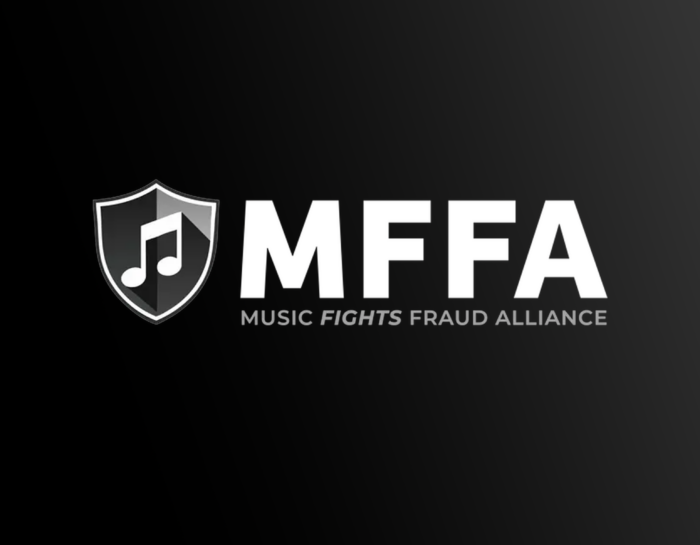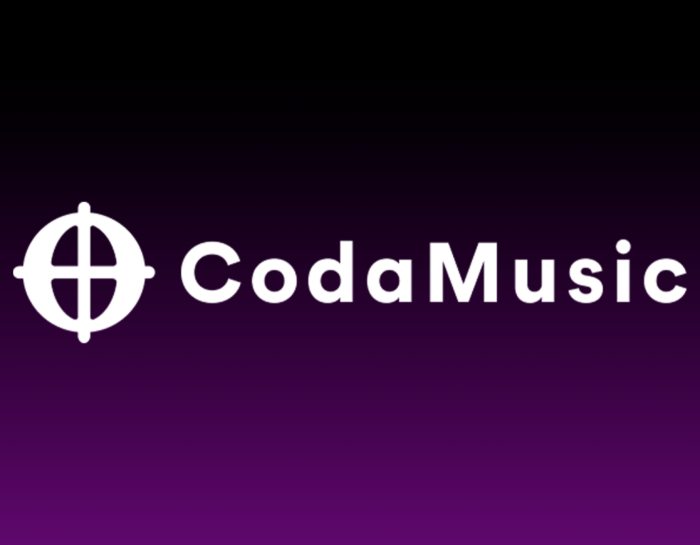
Meet New Merlin Board Member Golda Bitterli (Revelator)
Merlin’s Executive Interview Series is a monthly series featuring executives from across Merlin’s dynamic and diverse worldwide membership, discussing some of the most pressing topics, developments, and innovations in independent music today. This month’s piece features Golda Bitterli, VP of Sales at Revelator, discussing the democratization of music distribution and new technologies like blockchain.
Could you start by sharing your thoughts on the democratization of music distribution and why it’s significant for artists and labels today?
We’ve seen various layers of democratization of music throughout the last 25 or so years. First, we saw the power of peer to peer music file sharing in the early 2000s, which almost completely brought down the industry’s historic height in record sales. Then came the emergence of independent digital distributors, which have been pivotal for artists and labels. It has granted them the autonomy to distribute their work independently, reducing dependency on major label structures. Now the current technological landscape presents a notable inflection point, marked by unprecedented scale and accessibility.
We’ve seen another wave of democratization through what MIDiA Research calls the “social music creation revolution.” This refers to a significant shift in the way music is created, distributed, and consumed, driven by technological advancements and changes in social behavior. We see collaborative platforms such as BandLab enabling musicians to collaborate remotely in real-time and other platforms introducing crowdsourcing elements like vocals, instrumentals, or samples from online communities. Artists can monetize their music through platforms like YouTube via user-generated content (UGC). Songs can go viral overnight as users create videos incorporating the music, leading to increased exposure and sometimes even mainstream success for independent artists. We also see social media platforms like Instagram and Snapchat transition from solely music promotion tools to more collaborative platforms where artists directly crowdsource ideas for songs or lyrics.
Overall, this democratization allows independent artists to reach larger audiences and collaborate more easily while also changing the way fans discover and engage with music. As technology continues to evolve, we can expect further innovations that will shape the future of music creation and consumption. With this independence comes responsibility. Artists and smaller labels often overlook the necessity for robust support systems, particularly in marketing and branding, which are essential for visibility and success.
What are some of the most pressing challenges you see in the global distribution of music, especially for independent artists and labels?
There are three main challenges confronting the global distribution of music today. First is the sheer volume of content—over 100,000 tracks are uploaded daily to streaming services. This poses a significant hurdle in breaking through the noise.
The second pressing challenge lies in the pervasive issue of streaming fraud currently plaguing the music industry. In recent years, fraudulent activities have infiltrated the industry, capitalizing on the financial opportunities presented by streaming royalties. However, amidst this threat, the industry has demonstrated a heightened awareness and determination to combat such malpractices. Through concerted efforts and collaboration, exemplified by initiatives like the Music Fights Fraud Alliance, stakeholders are actively mobilizing to address this critical issue head-on.
The third and most pressing challenge is the persistent decline in streaming rates exacerbating financial strains on artists and labels. The fight for better streaming remuneration models is crucial, whether it is improving the typical pro-rata model of distributing all the revenue to the rightsholders of the tracks, on the basis of their market share of all the tracks streamed over a defined period, or the introduction of the user-centric model which allocates royalties from each user’s subscription solely to the rightsholders of the artists they actively listen to. I am not certain that a specific model will ultimately win but the point is that there needs to be a shift to increase the per stream rate for artists and rightsholders.
Amid these challenges, what opportunities does the democratization of distribution present to the music industry, particularly the independent sector?
The democratization of distribution offers unparalleled access to vast subscriber bases on streaming platforms and social media. Artists now possess an unprecedented opportunity to engage with audiences globally and diversify revenue streams beyond traditional avenues like physical sales and touring. Moreover, this accessibility fosters deeper connections with dedicated fans, enhancing the overall fan experience.
Moving onto blockchain, can you explain how blockchain technology is transforming rights management and royalty distribution in the music industry?
Blockchain technology provides an immutable ledger for tracking transactions, revolutionizing rights management and royalty distribution. It introduces a revolutionary concept known as “Smart Contracts.” These contracts are essentially self-executing agreements where the terms are encoded directly into the blockchain. This automation streamlines rights management processes, enabling the seamless enforcement of licensing agreements and facilitating transactions between rightsholders and users with unparalleled efficiency and transparency.
The benefits of blockchain include the ability to provide more transparency, reduce disputes, and hopefully provide faster and more fair compensation for creators.
At Revelator, we’ve been developing our web3 infrastructure over the last 5 or so years. Our groundbreaking Original Works protocol brings a novel Real-World Asset (RWA) platform that significantly simplifies IP management for all stakeholders, by empowering tokenization of creative IP rights and facilitating faster blockchain-enabled, cross-border settlements.
The following examples showcase ways in which we’ve demonstrated the efficacy of blockchain:
- In collaboration with one of the major publishers, we tokenized musical works in order to accelerate visibility into the pipeline of mechanical royalties from quarterly to monthly. In a remarkable feat, we processed 7 months of consumption data on-chain within just 1 day of receiving reports.
- In another breakthrough, we pioneered a new standard for tokenizing musical work assets and distributing performance royalties in real-time using smart contracts. Partnering with BMAT and Teosto, we drastically reduced the settlement and payment time for performance royalties to 19 songwriters and music publishers from 1-2 years to a mere 24 hours.
- Currently, we’re collaborating with Thaw Digital on a DeFi lending pilot program, which empowers music IP rightsholders to access advances against their streaming revenues. This innovative initiative aims to provide liquidity and financial flexibility to artists and creators in the digital age.
How do you see blockchain technology enhancing the relationship between artists and their fans, or influencing fandom as a whole?
Blockchain enhances artist-fan interactions by offering novel avenues for engagement, such as non-fungible tokens (NFTs) and decentralized applications. These technologies enable direct connections and community-building, fostering deeper bonds between artists and their supporters.
We are working with a big Afrobeat artist in Africa to leverage his network of fans and producers and launch a decentralized label offering aimed at emerging African artists, while retaining 100% ownership of their rights. Together we will launch an NFT campaign where all content is pre-cleared and licensed for remixing and collaboration, and a social media campaign to select 10 winning tracks for distribution through Revelator. Publishing administration will also be handled for NFTs and distributed works. This venture is a completely disruptive model for African artists, providing them with greater control and opportunities in the music industry.
From your perspective, what are the key trends shaping the global music market today, and has Revelator’s partnership with Merlin helped you respond to these trends?
Anyone reading this knows that music holds a profound significance in our lives, it colors and shapes our experiences in unique ways. As evident in a growing trend, we see that an increasing number of non-music platforms are recognizing the value of incorporating music into their applications. From fitness and mental wellness apps to metaverse platforms, music is increasingly becoming an integral component of diverse digital experiences. In light of this trend, Merlin emerges as a pivotal partner for identifying and facilitating deals with both established and emerging platforms within this realm.
Another notable trend in the global music industry is the remarkable increase in consumption, particularly in emerging markets like India. Luminate’s 2023 year-end report highlights this surge, revealing that India experienced the highest year-over-year growth in total on-demand audio and video song streams compared to any other market. Additionally, within the Top 5 Global Languages, Hindi-language tracks have significantly expanded their market share within the world’s Top 10,000 streaming tracks, rising from 6.1% in 2022 to 7.8% in 2023. In light of these developments, Merlin plays a crucial role in brokering deals with platforms in these burgeoning markets, leveraging their considerable growth potential.
What advice would you give to emerging artists and labels trying to navigate the complexities of distribution and rights management in today’s digital age?
For emerging artists and labels, understanding the intricacies of music rights is paramount. Equally important is maintaining comprehensive catalog metadata records, whether through spreadsheets or a digital rights management system. When choosing a distribution partner, prioritize alignment with your goals and transparent terms. While your distributor can also serve as your rights management system, ensure that you’ll retain access to your catalog metadata should you switch providers in the future. Embracing technology for rights management is essential for optimizing revenue streams and safeguarding your creative assets.
Looking ahead, what do you believe are the biggest challenges and opportunities for the music industry in leveraging technologies like blockchain?
The primary challenge lies in overcoming the fear of potential loss of revenue. Unfortunately I think various stakeholders feel that if they adopt blockchain technology, they will either become obsolete or they will lose significant gains. On the contrary, the potential to revolutionize royalty distribution and enhance trust within the industry represents a significant opportunity. I am confident that adoption will come in time after several successful blockchain initiatives and use cases indisputably showcase how the benefits outway the drawbacks.


